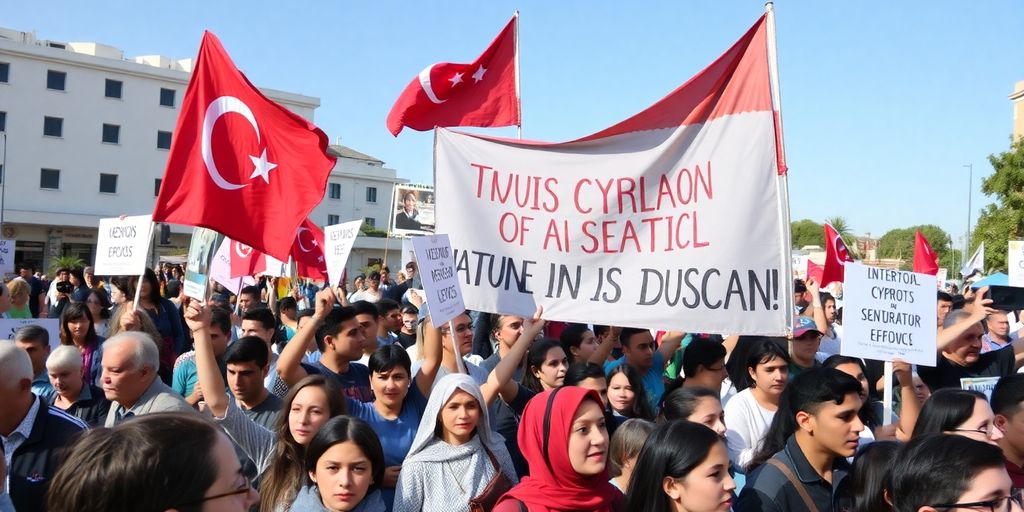Several thousand Turkish Cypriots gathered in Nicosia to protest against what they perceive as Turkey’s encroachment on their secular education system. The demonstrators voiced their concerns over recent changes that they believe threaten their secular identity and promote political Islam.
Key Takeaways
- Thousands protested in Nicosia against Turkey’s influence on education.
- The protests were sparked by the lifting of a headscarf ban in schools.
- Organizers claim the changes are part of a broader agenda to Islamize Turkish Cypriot society.
- A legal challenge against the headscarf policy is underway.
Background of the Protests
The protests erupted following a controversial decision by the Turkish Cypriot authorities to lift a ban on wearing headscarves in high schools. This move has been interpreted by many as an attempt to shift the secular foundations of Turkish Cypriot society towards a more religiously influenced framework, aligning with the policies of Turkey’s ruling AKP party.
Elma Eylem, president of the Turkish Cypriot Secondary Education Teachers’ Union (KTOEÖS), has been a prominent voice in the protests. She argues that the lifting of the ban is not merely about personal freedom but is indicative of a larger strategy to impose political Islam on the Turkish Cypriot community. Eylem stated, "This issue is a step taken by the AKP in its efforts to deepen the political Islam domination over the Turkish Cypriot Community."
The Nature of the Demonstrations
The protest in Nicosia saw participants carrying banners with slogans such as "It won’t pass" and "Cyprus will stay secular." The event was organized by leftist trade unions and included a concert to rally support for the cause. Demonstrators expressed their determination to maintain the secular character of their education system and resist any attempts at Islamization.
The protests have been characterized by a strong sense of unity among various groups, including teachers’ unions and political parties, all of whom are concerned about the implications of the recent policy changes.
Political Context
The backdrop of these protests is the long-standing division of Cyprus, which has been split since 1974 following Turkey’s military intervention. The Turkish Republic of Northern Cyprus, recognized only by Turkey, has been under the influence of Ankara, which maintains a significant military presence on the island.
The protests coincided with a visit from Turkish President Recep Tayyip Erdogan, who is expected to address the situation and may publicly rebuke the demonstrators. This visit underscores the ongoing tensions between the Turkish Cypriots and the Turkish government, as many feel their autonomy is being undermined.
Future Implications
As the protests continue, a legal challenge has been initiated at the Turkish Cypriot Constitutional Court against the headscarf policy. Eylem emphasized that this struggle is not just a short-term fight but a long-term commitment to preserving the secular identity of Turkish Cypriots.
The situation remains fluid, with potential implications for the broader political landscape in Cyprus. The recent appointment of a UN envoy to explore peace talks may also play a role in shaping future discussions about the island’s governance and the rights of its communities.
In conclusion, the protests reflect deep-seated concerns among Turkish Cypriots about their identity and the influence of external forces on their society. As they rally for their rights, the outcome of this struggle could have lasting effects on the future of education and secularism in Northern Cyprus.






